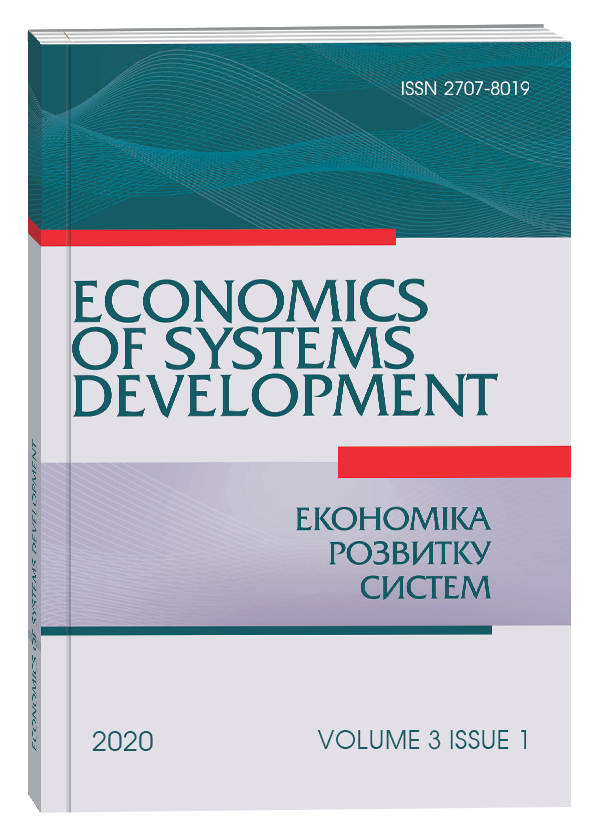THE ECONOMIC PECULIARITIES AND PROBLEMS OF UNITED TERRITORIAL COMMUNITIES (UTCS) FORMING IN UKRAINE
Анотація
In this article we have analyzed the process of reforming local self-government and budgetary decentralization in Ukraine. Special attention was paid to the formation of united territorial communities. Solving the problem of budgetary decentralization is an important problem of the ensuring the effective functioning of the multi-level budgetary system. Its’ main destination is the creating conditions for the proper implementation by the local authorities due to their functional powers. The effective social-economic development of the regions is limited objectively by the level of its financial resources’ provision. The basis of financial resources consists of local budget revenues. In this context process of the budgetary sphere are responsible for creating the economic incentives for local self-government bodies. It will help to develop their territories, expand own tax bases and use effectively budgetary funds.
Посилання
Resolution of the Cabinet of Ministers of Ukraine "On Approval of the Methodology for the Formation of Capable Territorial Communities" dated April 8, 2015 No. 214. Available at: http://www.zakon.rada.gov.ua
"Why unification of territorial communities is needed." Skala-Podilsk community. Available at: https://skalapodilska-gromada.gov.ua/more_news2/23-48-41-31-01-2018/
Kavunets A., Doroh V. Peculiarities of unification of territorial communities in Ukraine (regional aspect). Kyiv, 2016. 94 p.
Negoda V. "What happened in the development of communities and territories in 2019 – data from the monitoring of decentralization" / Press center of the "Decentralization" initiative. Available at: https://decentralization.gov.ua/news/12055.
Lelechenko A.P., Vasilyeva O.I., Kuybida V.S., Tkachuk A.F. Local self-government in conditions of decentralization of powers. Kyiv, 2017. 110 p.
European framework convention on cross-border cooperation between territorial communities or authorities: convention of 21 tr. 1980: ratified by the Law of Ukraine dated July 14, 1993 No. 3384-XII (3384-12)-VR / Legislation of Ukraine. Available at: http://zakon3.rada.gov.ua/laws/show/995_106
European Charter of Local Self-Government: Charter dated October 15 1985: ratified by the Law of Ukraine dated July 15 1997 No. 452/97-VR / Legislation of Ukraine. Available at: http://zakon1.rada.gov.ua/cgi-bin/laws/main.cgi?nreg=994_036
Tataryn N.B., Voytovych V.V. Local budgets as a financial base of local self-government. Scientific Bulletin of the Uzhhorod National University. Series: International economic relations and the world economy. 2017. Issue 11. P. 159–162.
Pelekhata O.V. The development budget as a tool of the rural territorial community in the implementation of the budget policy of economic growth. Socio-economic problems of the modern period of Ukraine. 2013. Issue 6(104). P. 355–361.
Kyrylenko O., Malynyak B., Pysmennyy V., Rusin V. Planning and management of financial resources of the territorial community: a study guide for officials of local self-government / Association of cities of Ukraine. Kyiv: VI EN EY ENTERPRISE LLC, 2015. 396 p.
The State Fund for Regional Development – a financial instrument for sustainable regional development. Useful information on the development and implementation of regional development investment projects. Regulatory and Legal / Ministry of Community and Territorial Development of Ukraine. 2016. Available at: https://www.minregion.gov.ua/napryamki-diyalnosti/regional-dev/derzhavna-rehional-na-polityka/derzhavniy-fond-regionalnogo-rozvitku/


